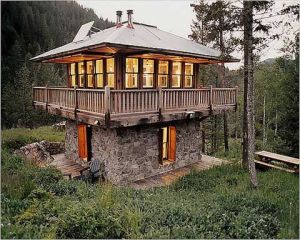Just Survive or Live Close to Normal?
 Having lived through hurricanes and other storms I have experienced days without power. We even had 1 year when 3 hurricanes hit our house within a single 30 day period. Not fun.
Having lived through hurricanes and other storms I have experienced days without power. We even had 1 year when 3 hurricanes hit our house within a single 30 day period. Not fun.
During this season our kitchen was absolutely unusable due to the black mold behind the counters and walls. Within 24 hours we had to rip out the counters and appliances. It was 6 months before our kitchen was put back together. This gave us a unique perspective on the need for shelter and the ability to prepare meals for our family.
During Hurricane Katrina I provided cleanup assistance to a town in Mississippi. This volunteer effort gave me another unique perspective on the need for emergency shelter. We saw homes that were totally uninhabitable. Entire families were suddenly without any form of shelter, ability to prepare meals or any clothes.
You need to decide if you are going to plan for emergency evacuation and survival or are you going to have a travel trailer or motor home and live close to normal or are you going to have a bu out location.
Making the Decision
 More than any other aspect of emergency planning the decisions you make concerning shelter will be the most costly. If you opt for living close to normal then you may look at emergency preparedness as not much more than “Glamping”. Spend the money on a motor home and make this your home away from home. For us, we just don’t have that kind of money so we opted for a different route.
More than any other aspect of emergency planning the decisions you make concerning shelter will be the most costly. If you opt for living close to normal then you may look at emergency preparedness as not much more than “Glamping”. Spend the money on a motor home and make this your home away from home. For us, we just don’t have that kind of money so we opted for a different route.
We actually enjoy camping and have annual camping trips where we have fun practicing our survival skills. Even though there are only 2 of us we have a 10 person tent that gives us ample room to set up queen size cots and air mattresses. We have room for chairs, fans and reading lights. Believe me when I say that we don’t suffer when we camp.
I guess that is my point here about making your decision. Go camping. See how you and your family enjoy the experience. Then go with what works for you and yours.
Do you have the finances available to have a bug out location? Then you can set up for the lifestyle that you wish to have for years to come. This is probably the vision that most people have af an emergency shelter. A remote cabin or home where you and your family can escape to when things get too rough.
 Part of this decision will be how to prepare meals and purify water during your time living on your emergency preparations. Are you good at cooking over an open fire? Do you even have to cookware that is good for that?
Part of this decision will be how to prepare meals and purify water during your time living on your emergency preparations. Are you good at cooking over an open fire? Do you even have to cookware that is good for that?
You are going to need 1.5 – 2 gallons of drinking water per day per person. How do you intend to provide that for you and your family?
Then there are they hygiene and santitation decisions that are coming. Not properly handled you will cause disease for you and your family. During the best of times this is more than an inconvenience. During an emergency situation simple illnesses turn deadly.
How Long to Plan For?
Tents will not last for years and neither will your fuel supply for a trailer or motor home. Each method of shelter will have its own set of challenges. Whichever route you take you must also plan for lengthy stays. That is going to mean fuel for the trailer or motor home and tarps and repair kits for tents.
Your bug out retreat should have the ability to have enough room to grow a garden and sustain life for years. Your plan should include seeds and tools to plant/grow a garden as well as a water source.
For us, we have multiple tents and also the equipment to build more permanent shelters. Think back to the pioneers. They slept under their wagons or sometimes inside their wagons with their supplies during bad weather. When they got to their destination one of the first things they did was build a shelter. You will need to do the same.
Creating a Plan That Works for You
Are you ready to spend a year living in a tent or are you going to spend the money to go Glamping or on a bug out retreat?
How do you plan to prepare meals during that time? Camp stoves are great but they require fuel. Camp fires will work for some but do require firewood to burn. Solar ovens are great as long as there is sunlight.
A person will die after 3 days without water to drink. You must plan for furnishing a steady supply of drinking water for each person in your group. Gathering rain water is effective but you still have to purify it.
Shelter is a whole lot more than keeping dry and warm. It also must include food preparation, hygiene and sanitation.